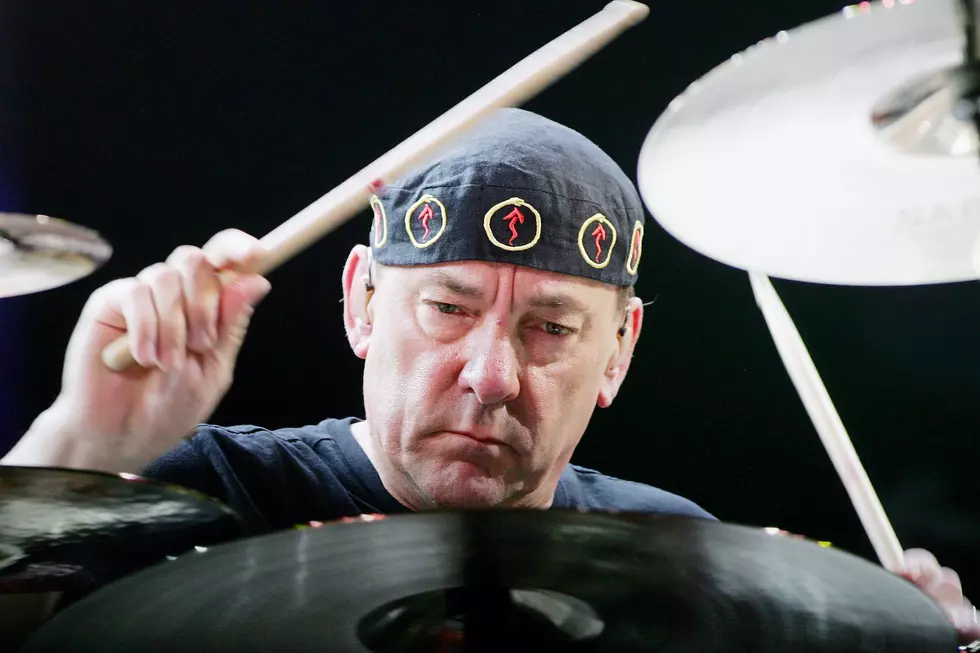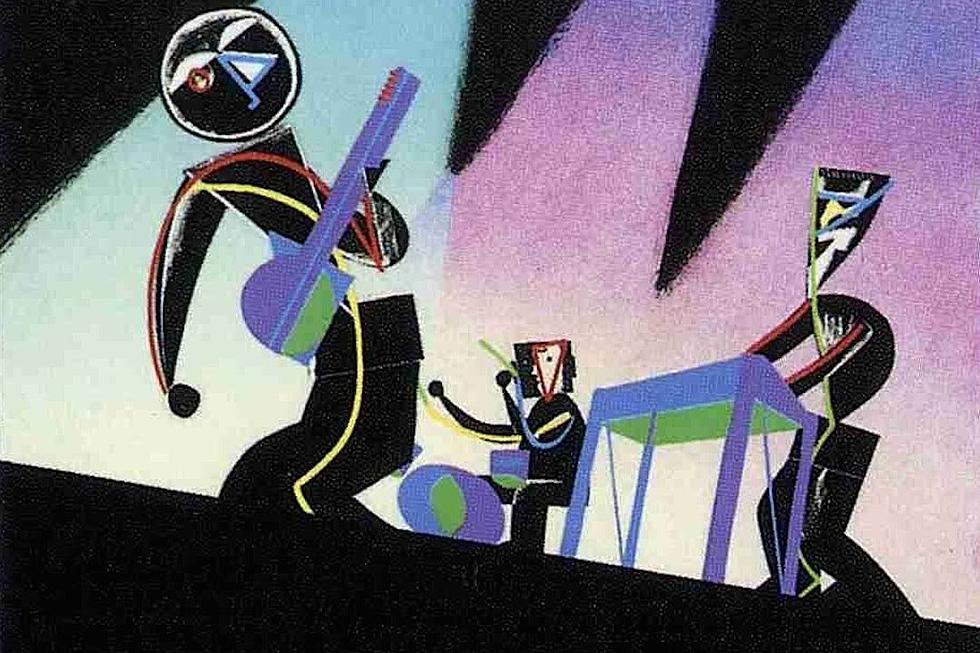
Rush Drummer and Lyricist Neil Peart Dies
Rush drummer and lyricist Neil Peart has died, following a quiet battle with an aggressive form of brain cancer called glioblastoma. He was 67.
"It is with broken hearts and the deepest sadness that we must share the terrible news that on Tuesday [Jan. 7], our friend, soul brother and bandmate of 45 years, Neil, lost his incredibly brave three-and-a-half year battle with brain cancer," the band said in a news release.
Rush completed their final tour in 2015, after Peart decided to spend more time with his wife, photographer Carrie Nuttall, and their daughter Olivia. Peart never played again, confirming Alex Lifeson's assertion back then that his bandmate was through with touring.
"His shoulders were hurting, his arms were hurting, his elbows, his feet – everything," Lifeson said. "He didn't want to play anything less than 100 percent. He was finding it increasingly difficult to hit that mark on this last tour. So, all those things combined, I get it."
By then, Peart had left an indelible mark on Rush, both with his virtuoso approach at the drums and his literary flair as a lyricist. He later revealed that the two things went very much hand in hand.
"A big influence on me was John Steinbeck’s The Acts of King Arthur and His Noble Knights, which he never finished in his lifetime," the Canadian told Rolling Stone in 2015. "It opens with a little preface that said, ‘Some people there are ... .’ I said, why? Strange turn of phrase. But he had obviously deliberately chosen it. And some of those formal phrasings were because I was very much driven by rhythm of words – and still am. A line will strike me just because of its drumming rhythm."
Rush had already put out a self-titled debut album before Peart made his performance debut, as they opened for Uriah Heep on Aug. 14, 1974, at the Pittsburgh Civic Arena. But that concert marked a critical turning point for Rush, for their gangly new 21-year-old drummer – and for rock.
"Among the many memories of that life-changing experience, I would never forget standing on the floor beside stage left while Uriah Heep played 'Stealin'," Peart said in his 2006 book Roadshow – Landscape with Drums: A Concert Tour by Motorcycle. "The big dark building, colored lights on the heroic figures up on the stage, the roaring audience, the sheer electricity in that place. Halfway through their show, the retractable dome of the Civic Arena had peeled back, open to the summer night."
He'd almost given up on this dream, resorting to working behind the parts counter at his father's farm equipment dealership in St. Catharines, Ontario. Peart memorably arrived for his tryout driving his mother's Ford Pinto, with his drums packed into garbage cans.
"I remember thinking, 'God, he's not nearly cool enough to be in this band,'" Lifeson said in Beyond the Lighted Stage. "And then he started playing, and he pounded the crap out of those drums. He played like Keith Moon and John Bonham at the same time."
Peart's studio debut on 1975's Fly by Night is now recognized as the group's true starting point. That kicked off a creative then commercial juggernaut marked by critically lauded triumphs like 1976's 2112 and multi-platinum smashes like 1981's Moving Pictures.
Peart provided a steady presence through stylistic changes, as the '80s saw Rush move into then-modern synth-forward sounds, before a return to their sturdy bass-guitar-and-drums trio approach. Personal tragedy also played a role: Peart's first daughter, and then-only child, died in a single-car accident in 1997, just after Rush ended their Test for Echo tour. Her mother died of cancer 10 months later, and Peart's professional life ground to a sudden halt.
Peart hit the highway. He said he racked up 55,000 miles on his motorcycle during the lengthy sabbatical that followed, roaring throughout North and Central America as part of a journey chronicled in his 2002 book Ghost Rider: Travels on the Healing Road.
Watch Neil Peart Perform 'Distant Early Warning' on Rush's Final Tour
Rush put out their comeback album, titled Vapor Trails, the same year. Peart was reborn – as was Rush. They issued two more well-received albums, tying the band's best-ever Billboard finish with 2012's No. 2 finale Clockwork Angels.
"We had a period where we were inactive for about five or six years for personal reasons," Geddy Lee told Matt Cooper in 2011. "When we came back, there was this renewed energy and renewed interest and simply an appreciation for the fact that we're able to play as a band together at a particular level."
At the end, Rush enjoyed a period of sustained recognition. First was a long-awaited induction into the Rock & Roll Hall of Fame in 2013. ("We've been saying for a long time that this wasn't that big a deal," Peart admitted that night. "Turns out, it truly is a big deal.") Their first-ever cover story for Rolling Stone followed.
Then one of their most celebrated jaunts, the subsequent R40 tour, ended up as a valedictory celebration. Rush went into things calling it the "last major tour of this magnitude," and the set list evolved into a fan-geared, career-spanning romp featuring rarities such as "Jacob's Ladder" and “Lakeside Park.”
As those dates continued, though, Peart began to wear down. He complained of tendinitis in his arm, hampering his ability to perform pain-free. Peart had already created a rigorous fitness program meant to keep him behind the drums for as long as possible, but soon the inevitable loomed.
At first, there was some question as to whether Rush were actually done touring. Lee didn't sound ready to stop, but he and Lifeson both insisted that there could be no Rush without Peart.
"He hasn't just retired from Rush, he's retired from drumming," Lee told Trunk Nation in 2018. "He's not drumming anymore, and he's living his life – which is fine. Alex and I are cool with it. We're all still total pals."
At that point, Peart seemed to have slipped into his next phase with remarkable ease.
"Lately, [his daughter] Olivia has been introducing me to new friends at school as 'My dad – he's a retired drummer,'" Peart told Drumhead magazine in 2015. "True to say," he added, before noting that it's "funny to hear. And it does not pain me to realize that, like all athletes, there comes a time to take yourself out of the game. I would rather set it aside than face the predicament described in our song 'Losing It.'"
Peart's lyric for that tune, released on 1982's Signals, noted that it was "sadder still to watch it die, than never to have known it."
In Memoriam 2010-2019: Rockers We Lost
More From Ultimate Classic Rock









